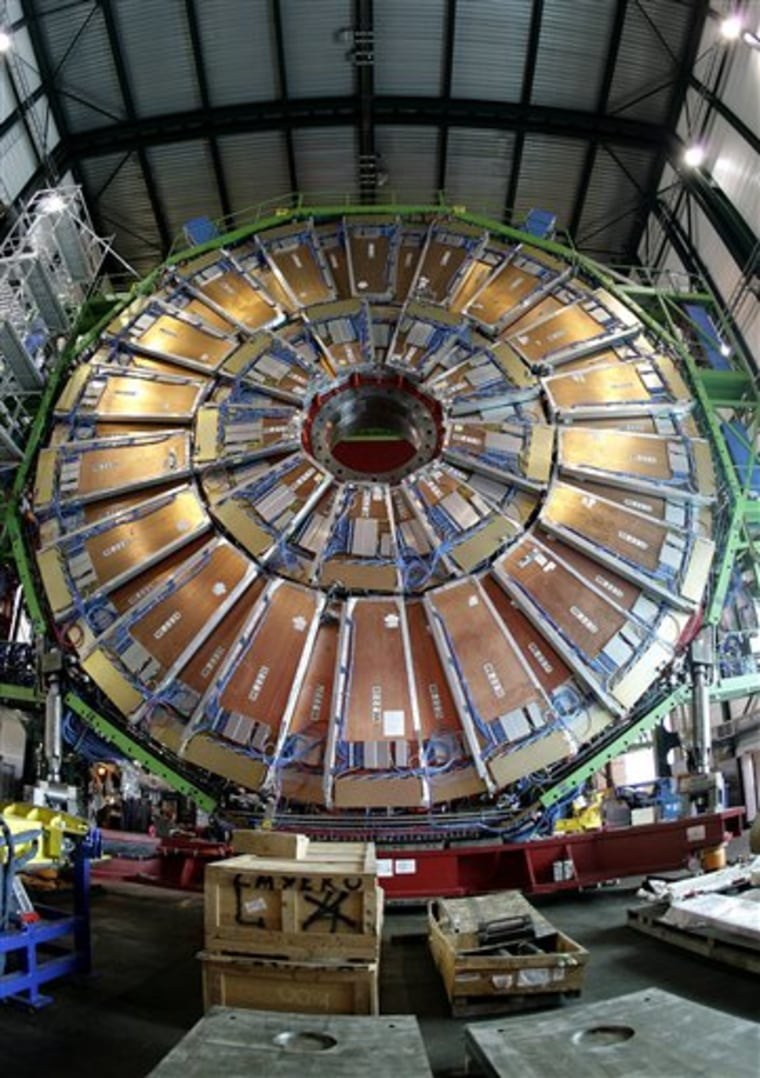The ultrahigh-speed Internet2 network just got 10 times faster, partly in anticipation of rising demand for capacity after the world's largest particle collider opens near Geneva next year.
Until recently, the Internet2 had a theoretical limit of 10 gigabits per second, which is thousands of times faster than standard home broadband connections. By sending data using 10 different colors, or wavelengths, of light over a single cable, operators are boosting the network's capacity to 100 Gbps.
That means a high-quality version of the movie "The Matrix" could be sent in a few seconds rather than half a minute over the old Internet2 and several hours over a typical home broadband line.
The new Internet2 network was largely completed in late August, and its operators this week made it possible for researchers to temporarily grab an entire 10 Gbps chunk for specific applications, so that they don't slow down normal Internet operations.
"It's now possible for a single computer to have a 10 gigabit connection and we needed to have a way of making sure that those kinds of demanding applications could be served at the same time as all the normal uses," Doug Van Houweling, Internet2's chief executive, said Wednesday.
The Internet2 network, run by Level 3 Communications Inc., parallels the regular Internet to let universities, corporations and researchers share large amounts of information in real time.
An institution typically has one 10 Gbps connection to the 100 Gbps Internet2 backbone for normal Internet usage, along with a second 10 Gbps connection it can tap on demand for specific needs, Van Houweling said.
Physicists will likely be among the first to use that on-demand capability, Van Houweling said, when the $1.8 billion Large Hadron Collider at the European Organization for Nuclear Research begins operations, now scheduled for May.
"There will be thousands of physicists who will all need to access the data coming out of the LHC," he said.
Astronomers, meanwhile, might one day use the faster network to link distant radio telescopes to get a clearer picture of the sky in real time, Van Houweling said.
Internet2 already is planning future expansion. By adding certain equipment, Van Houweling said, the network can easily boost capacity another fourfold to 400 Gbps — something likely to begin in 12 to 18 months.
